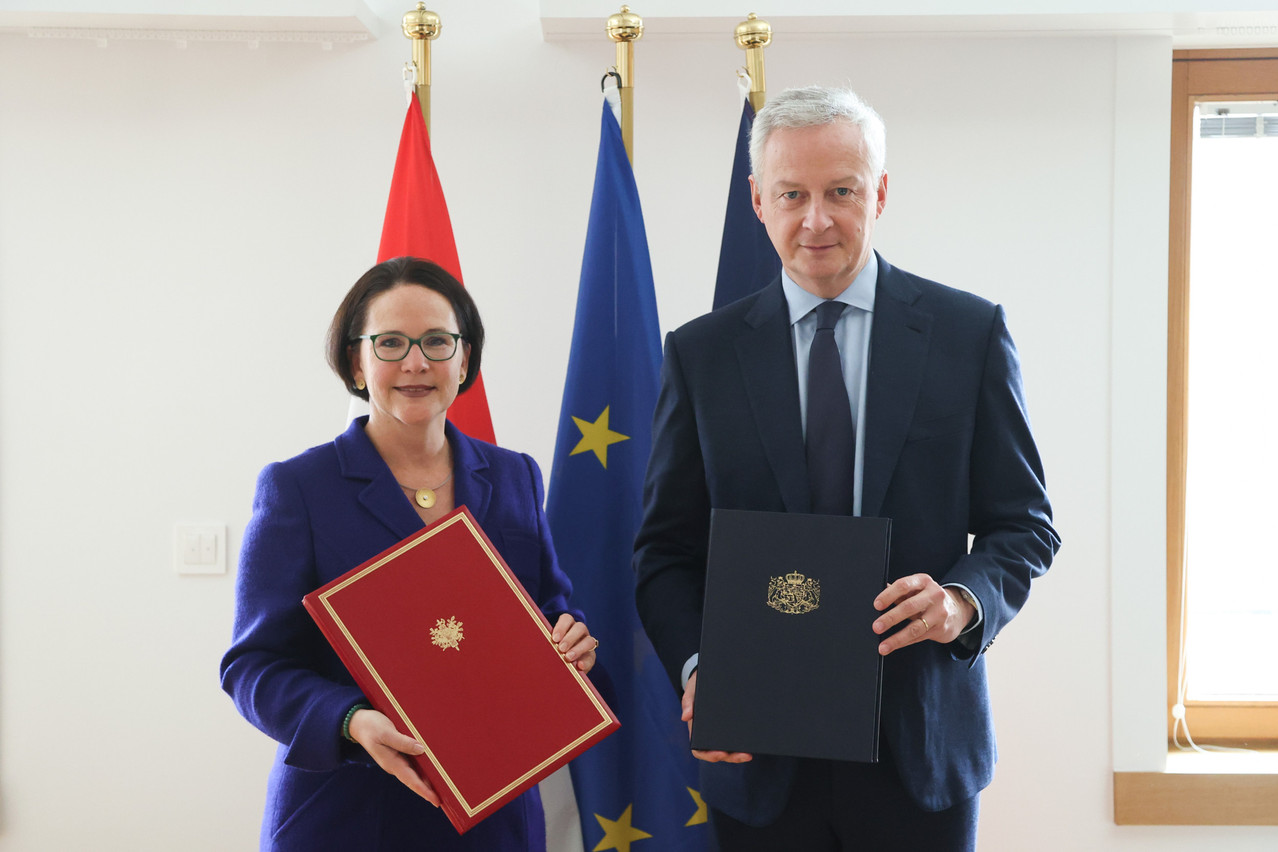On 30 September, during a visit to Paris, Finance Minister (DP) reached an agreement with her counterpart Bruno Le Maire that French cross-border workers employed in Luxembourg would benefit from five additional days of teleworking from 1 January 2023. This has now been made official with the signing of an amendment to the tax treaty between the two countries, pending formal ratification.
In a press release, the ministry of finance indicated that France and Luxembourg have agreed to increase the fixed rate provided for in the bilateral tax treaty from 29 to 34 days, in order to take into account the development of telework for workers and residents of one of the two member states and employed by a company located in the other.
The agreement will be applicable for the income received in 2023, while a permanent solution is to be defined before the end of 2024.
Germany still at 19 days
The agreement means that French border workers will have the same teleworking days allowance as Belgians. On 20 October the Belgian cabinet approved a project to grant 34 days of telework to Belgian border workers. Legalisation to that effect is expected before the end of the year.
In Germany, on the other hand, the telework threshold is still just 19 days. Even though a public petition suggesting an increase to 55 days, submitted to the Bundestag at the beginning of the year, caused a stir, it did not reach the 50,000 signatures required to initiate a parliamentary debate.
This article was first published in and has been translated by Delano.
